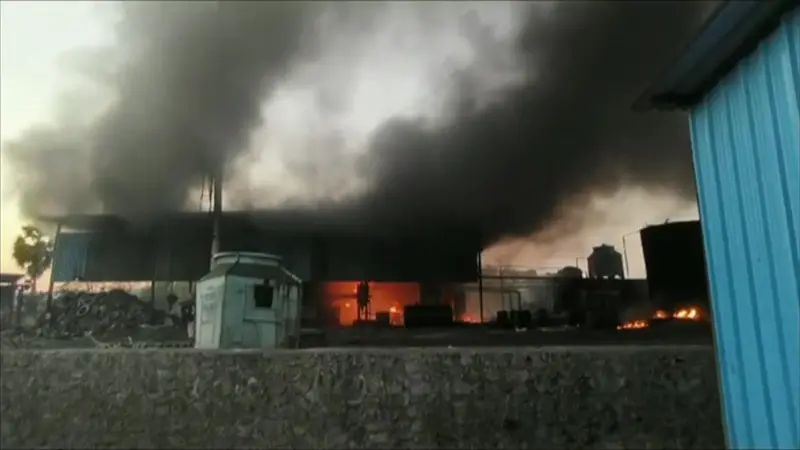 Image Source: BBC
Image Source: BBC
A recent BBC investigation uncovered alarming practices revealing that millions of used tyres exported from the UK intended for recycling are instead ending up in makeshift furnaces across India. These operations not only severely harm public health but cause significant environmental damage. In response, the UK’s Environment Agency (EA) has launched extensive new verification measures and reviews to tighten controls on tyre waste exports, aiming to ensure environmentally sound management and curb illegal pyrolysis activities.
Key Highlights: BBC Findings Prompt Regulatory Scrutiny
The BBC’s "File on 4" investigation exposed that approximately 70% of UK-exported tyres to India are diverted from legitimate recycling channels and are burned in unauthorized furnaces to recover steel, oil, and carbon black.
These makeshift facilities, often located in rural regions, emit toxic fumes with serious consequences for local communities, including respiratory illnesses and eye problems.
A tragic explosion at a tyre processing plant in Maharashtra earlier this year resulted in multiple deaths, highlighting the risks associated with inadequate safety and environmental standards.
The investigation pointed to widespread falsification of shipping documentation (Annex VII forms), obscuring the real fate of tyres and hindering effective oversight.
Environment Agency Actions: Enhanced Verification and Enforcement
From October 2025, the EA will impose stricter verification requirements on exporters sending waste pneumatic tyres to India, mandating proof that tyres are handled in an environmentally sound manner.
The EA acknowledged systemic regulatory failures and gaps in tracking exported waste, including cases where falsified paperwork suggested tyres reached authorized recycling facilities when they did not.
Information Notices will be served to UK brokers and exporters to compel transparency and compliance, while additional staff training will improve the agency’s capacity to enforce regulations.
Plans include the rollout of a Digital Waste Tracking System (DWTS) to provide real-time oversight and reduce illegal diversions.
Challenges and Industry Implications
The UK exports nearly half of its estimated 50 million annual waste tyres to India, a trend that has persisted despite the Indian government’s ban on importing waste tyres for pyrolysis since July 2022.
Environmental groups and industry stakeholders have long warned that the export model often results in shipment to illegal processing sites, undermining domestic recycling efforts and public health protections.
The EA and Tyre Recovery Association (TRA) stress the need for UK government intervention to prevent the export of waste to substandard facilities abroad and encourage investment in home-grown recycling infrastructure.
India has responded with evolving regulations requiring tyre importers, manufacturers, and recyclers to register and comply with ambitious recovery targets, but enforcement remains a challenge.
Environmental and Health Concerns in India
Burning tyres release carcinogenic substances such as dioxins, furans, and polycyclic aromatic hydrocarbons, contributing to severe air and water pollution.
Communities near burning sites report contaminated groundwater, discolored soils, and increased incidences of respiratory ailments and skin irritations.
Tyre burning also poses fire hazards; once ignited, tyre fires can burn for extended periods, causing prolonged environmental harm.
Outlook and Future Measures
The EA’s review anticipates further reforms by the end of 2025, including stronger collaboration with the Indian Ministry of Environment, Forestry, and Climate Change to enhance cross-border waste management transparency.
The UK government has committed to removing exemptions that allowed inadequate tyre storage and treatment practices (the T8 exemption), increasing the regulatory burden on operators handling large volumes of tyres domestically.
Continued enforcement and international cooperation will be essential to dismantle illegal export networks and promote sustainable tyre recycling solutions that protect health and the environment.
Conclusion
The BBC’s exposé on tyre waste exports to India has sparked a critical reassessment of the UK’s tyre recycling controls, highlighting persistent loopholes exploited by criminal trades. With new, stringent Environment Agency checks coming into effect, the path towards credible, accountable tyre waste management is clearer. These measures aim to safeguard communities against the dangers of illegal tyre burning while fostering responsible recycling practices at home and abroad, ensuring that tyre disposal lives up to environmental and ethical standards.
Sources: BBC News, Environment Agency
Advertisement
Advertisement




